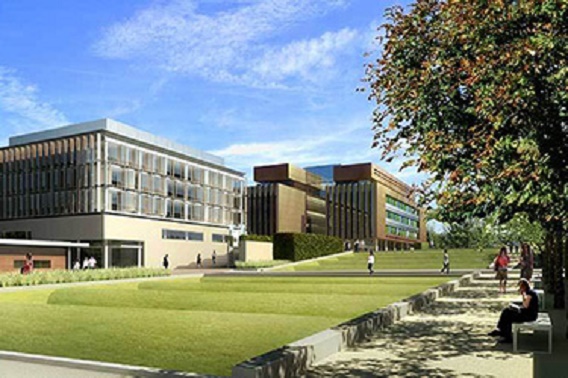University of Southampton: Southampton to lead new research network aiming to improve muscle resilience throughout people’s lifespan
The University of Southampton will lead one of the eleven new national research networks to tackle challenges in ageing, announced today by the Biotechnology and Biological Sciences Research Council (BBSRC) and Medical Research Council (MRC).
Scientists at the University will lead the MyAge (Muscle resilience across the life course: from cells to society) network. Over the course of the two year project, they aim to build new collaborations and hypotheses for the future of research in this area and develop a roadmap to interventions that can achieve five more years of independent living.
Previous reviews of how to boost ageing research in the UK have found research efforts to be fragmented, focusing on single aspects of ageing. Now these networks aim to provide researchers with strong platforms to integrate expertise and knowledge. They will aim deliver a better understanding of the biological mechanisms of ageing and how to increase healthy lifespan and quality of later life.
Working alongside the public, industry partners, charities, policymakers and health practitioners, the networks aim to translate findings into future policy, public health and new therapies.
Led by Professor Peter JS Smith, with Professor Karen Lillycrop, Professor Keith Godfrey and Professor Carolyn Greig (Birmingham), Dr Kambiz Alavian (Imperial College), and Dr Mathew Piasecki (Nottingham), MyAge brings together experts from different disciplines and sectors to understand the fundamental mechanisms behind muscle ageing.
Peter Smith, Institute for Life Sciences Director, said, “This is a fantastic opportunity for the UK Ageing Networks to come together, not only to address the pressing issues of ageing and associated health inequities, but also to identify points of intervention to help us live longer, healthier lives. This insightful funding from the BBSRC and MRC will reinforce the UK’s role as a global research power in an area of acute socioeconomic need.”
One of the most prominent changes associated with ageing is the loss of muscle mass and function, with up to half of muscle mass being lost by the eighth decade of life. It leads to impaired mobility, falls, fractures, physical disability, and serious socioeconomic consequences. Muscle ageing is affected not just by genetic factors, but also by an individual’s physical and social environment.
Karen Lillycrop, Professor of Epigenetics at the University of Southampton, said: “Promoting healthy muscle ageing is recognised as a fundamental aspect of helping people to stay in good health as they grow older. Having identified differences in activity in key energy-producing pathways within muscle cells we can now start to develop interventions that will hopefully help many more people to remain active and healthy in later life.”
Keith Godfrey, Nutrition Theme Lead in the NIHR Southampton Biomedical Research Centre, added: “Our team is well advanced in exploring why the changes in the muscle energy-producing pathways occur and are looking at nutritional factors that could improve muscle function in later life. MyAge provides an important opportunity to bring together leading researchers in the UK to tackle one of the major influences on multiple long-term conditions in older people.”
MyAge will connect researchers in metabolism, regenerative medicine, genome science, epigenetics, mathematics, social science, health inequity, biotech, and pharma, taking a reverse engineering approach to understand the pathways of muscle development, differentiation, and decline.
Professor Melanie Welham, Executive Chair of the Biotechnology and Biological Sciences Research Council, said: “At the heart of improved health and wellbeing is a deep, integrated understanding of the fundamental mechanisms that contribute to maintaining health across the full life course. An understanding that is underpinned by collaboration, partnerships and shared knowledge. By funding the Ageing Networks, we’re not only addressing a major societal challenge – we’re also stimulating multidisciplinary research and innovation, with the potential for some really exciting breakthroughs.”

